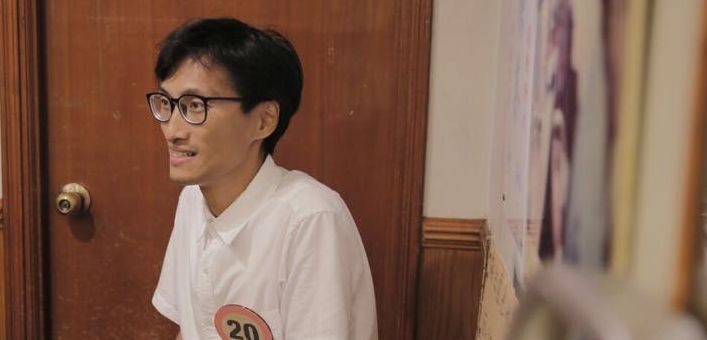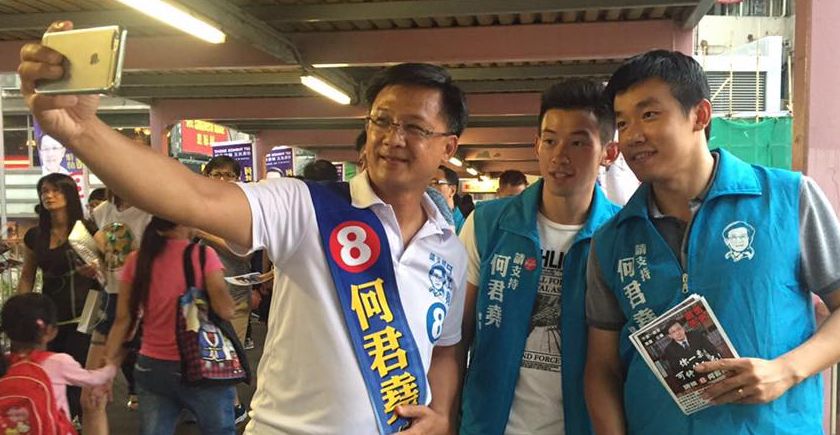In a record turnout of 58 per cent, the highest since 2004, some 2.2 million voters cast their votes in Sunday’s Legislative Council election – perhaps the most important poll since the 2014 pro-democracy Occupy protests.
As of 9:30am, 90 per cent of the geographical constituencies’ votes have been counted and announced. Most winners are already known.
For up-to-date results, please click here.
The opposition camp, including pan-democrats, localists and three who advocate self-determination for Hong Kong’s future, are set to win at least 18 seats in the geographical constituency, maintaining a minimum veto power to reject motions, bills and amendments to government bills proposed by fellow lawmakers. The results for the district council (second) functional constituency and other functional constituencies have yet to be announced, but the opposition camp is likely to win more than 24 seats in total, maintaining another vital veto power to block bills such as the controversial political reform package.

But the result was not without surprises. New faces won seats by a large margin in their first campaigns. Eddie Chu Hoi-dick, an independent candidate who focused his campaign on fairness of land use in the New Territories, will win with the highest number of votes compared to all – over 70,000.
Chu opined that the suspension of Ken Chow Wing-kan’s campaign – after allegations that he had received pressure from a “powerful force outside Hong Kong” – was a turning point for Chu’s own campaign. It allowed voters to understand the seriousness of what he called collusion between the government, business, rural groups and triads.
He broke into tears at the central counting station in Tung Chung, where vote counting is still ongoing.

Occupy protest leader Nathan Law Kwun-chung finished second in the Hong Kong Island constituency, with more than 42,000 votes. Law broke the record by becoming the youngest lawmaker in the legislature – formerly held by Democratic Party’s James To Kun-sun, who was 28 when he won in 1991. Law is 23.
Paul Zimmerman on the results pic.twitter.com/wDaVx2wpKx
— Kris Cheng (@krislc) September 4, 2016
Occupy protester Lau Siu-lai, a tertiary education institute lecturer, is winning by more than 32,000 votes, despite becoming embroiled in controversy on the last day before the election. She had to retract a promotional campaign for her universal pension scheme, claiming that no financial support from the public was needed. She apologised to voters.
Localist first timers, Youngspiration’s Sixtus “Baggio” Leung Chun-hang and Civic Passion’s Cheng Chung-tai, will also win seats in the legislature.
Civic Passion’s Cheng Chung-tai, who’s likely winning a seat, cheered by supporters pic.twitter.com/EanKDtpCbN
— Kris Cheng (@krislc) September 4, 2016
However, their success was possibly at the expense of some older veteran lawmakers. Labour Party long-term lawmaker Lee Cheuk-yan failed to get the last seat of their constituencies and has conceded defeat. He finished one place behind newcomer pro-Beijing candidate Junius Ho Kwan-yiu.
Meanwhile, it was still unclear whether it will be League of Social Democrats radical lawmaker “Long Hair” Leung Kwok-hung, or independent candidate Christine Fong Kwok-shan, who will win the last seat in the New Territories East constituency. With 90 per cent of the results in, Fong was leading Leung by 75 votes, as they were both around 30,000 votes.

But the tightest margin was a race between Raymond Wong Yuk-man – a godfather figure who founded and left two pro-democracy parties before settling with his own Proletariat Political Institute – and localist Youngspiration newcomer Yau Wai-ching.
Wong lost to Yau in the Kowloon West constituency by merely 424 votes, as Wong got 20,219 and Yau got 20,643 votes, in a result reported by Apple Daily.

For pro-democracy parties, the Association for Democracy and People’s Livelihood and the Neo Democrats took the largest blow – none of their candidates are set to win. The Labour Party only won one seat with Fernando Cheung Chiu-hung in New Territories East. People Power’s Ray Chan Chi-chuen also retained his seat.
Localist parties saw a mixed bag of results. Youngspiration won two out of three seats they were contesting; Civic Passion and an alliance it formed with Raymond Wong and Dr Chin Wan-kan only managed to win one out of five. Chan Chak-to, a candidate who publicly advocated Hong Kong independence, lost by a large margin in the Kowloon East constituency.
Chan Chak-to was disappointed by result, as many switched to other hopefuls; will reform his group w new volunteers pic.twitter.com/esVmGeigYA
— Kris Cheng (@krislc) September 4, 2016
Chan told HKFP that he was disappointed with the result, and that it may be due to voters strategically giving him up in order to get other opposition camp candidates elected.
“I got fewer votes than I expected, which I thought was due to that reason [strategic voters]… I believe it was not because I did not campaign well,” he said.
The pro-Beijing camp maintained seats for most incumbent lawmakers running for re-election, except Federation of Trade Unions’ Bill Tang Ka-piu in New Territories East. They won 16 seats in the geographical constituency.
See also: Photocopied IDs, sample ballots, free rides, and 186 complaints.
The election was not without controversy. At a polling station in Tai Koo Shing, voting was only completed by 2:30am – four hours after the official closing time of 10:30pm, when more than a thousand people were still in line as election officials set up an end point.

Polling stations were transformed into counting stations after the poll ended. Some stations on Hong Kong Island had begun counting before voting at Tai Koo Shing was completed – the Electoral Affairs Commission then demanded counting stop until voting was complete.
Barnabas Fung, the commission’s chairman, claimed that the effect of the premature counting on the Tai Koo Shing voters was “non-essential and unable to affect the fairness of the election” as only up to 6,000 people voted at the station, out of Hong Kong island’s 370,000.
But he apologised to voters for the long queue at the Tai Koo Shing station, admitting that the commission was unable to book another venue nearby.

In the Sheung Tak constituency in Tseung Kwan O, counting agents complained that after two counts, both the number of votes in the geographical constituency and the functional constituency ballot boxes were exactly 300 ballot papers higher than they should have been.
Many voters have also complained that their votes were “used” by someone else, as they were told by polling station officers that they could not receive their ballots.
See also: Hong Kong Free Press among digital media denied access to observe vote count.
As of 5am on Monday, Fung said it had received 2,200 complaints, with 700 relating to election ads, and some 500 on voter eligibility.
